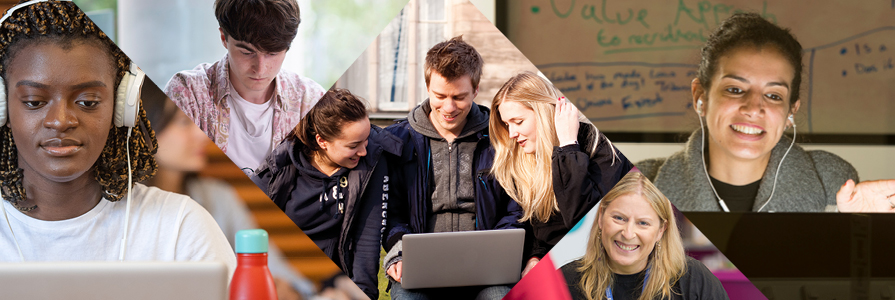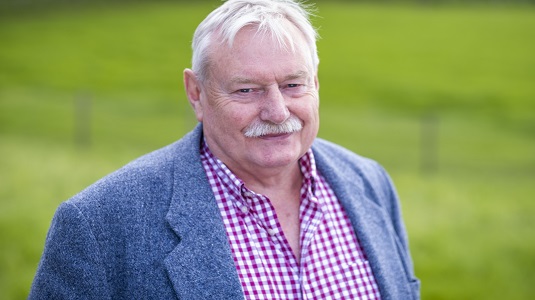SFC news published since 2018. See SFC archived content for earlier news articles.
As COP27 draws to a close, Professor Wayne Powell, Principal and CEO of Scotland’s Rural College (SRUC), writes about how SRUC is helping to address the challenges associated with the natural economy.

The world is heating up. The latest science predicts we are on track for temperature rises of 2.7C, and the UN Secretary General Antonio Guterres opened COP27 with the warning that we are on a ‘highway to climate hell’.
We need to cut carbon emissions, and the latest statistics give added urgency to the gathering of nearly 200 governments and 120 world leaders in Sharm El-Sheik.

But if the message is simple, finding the solutions is both complex and nuanced. They will need much more than the collaboration of governments. The leadership many are calling for requires the coming together of policy with the research expertise of academia, forward-looking businesses and the skills to implement change.
Scottish universities and colleges are at the heart of this and that has been amply proven in sectors with initiatives ranging from renewables to sustainability in food and drink production. But with ambition,
clear-sighted investment and an integrated mission-led approach, there is still much more we can do to develop our natural economy and address the impact of climate change.
At SRUC we are striving to put ourselves at the intersection of business, government and society. Our research is centred around the grand challenges of global food and nutrition security, climate change, the circular economy, conserving nature and biodiversity and Scotland’s economic competitiveness and we are particularly proud of how that research is driving applied innovation.
This includes initiatives such as SeedPod, which received £3.1 million from the Scottish Government’s
Just Transition Fund. Located at SRUC’s Craibstone campus, it marks a £21 million overall investment in the food and drink industry which includes the provision of start-up production space and development facilities for high-growth new businesses.
Similarly, the newly launched Dairy Nexus at our Barony Campus will support the innovation and creation of new products to boost productivity and help decarbonise the dairy farming industry. Then there’s the GreenShed system, which will use cattle waste products to power a methane capture system and grow indoor crops. This has the potential to remove the equivalent of 237 tonnes of carbon dioxide per farm per year.
And next year, SRUC will be the first higher education institution in Scotland to open a vertical farm for research and education. This facility will be used for research into plant and crop science, growing nutrient-dense fruit and vegetables, including the development of novel yet highly nutritious ‘superfoods’ such as purslane. In doing so we can better analyse crop yield and growth rates across all resource inputs, giving us new insights into the design of future nutritionally dense crops adapted for growth in vertical farms.
Each of these projects is a practical example of how we can innovate to place nature at the heart of the search for economic growth and better productivity in our economy. Over the past four years, SRUC has provided £57.5 million in business value to SMEs, and while this is more than any other UK higher education institution, there remains huge potential to grow the economic success of our agricultural and food sectors still further.
So, while the drive to cut emissions is on everyone’s minds as COP27 fills our news channels, the grand challenges associated with the natural economy, like food sustainability and climate change, must address issues of productivity and economic sustainability as well. The importance of future land use to the Scottish Government’s ambition for net zero is paramount.
SRUC’s tripartite mission of combining and connecting world leading research with tertiary education and consulting has never been more important in tackling the biggest challenge facing society and business, namely climate change and achieving net zero.

